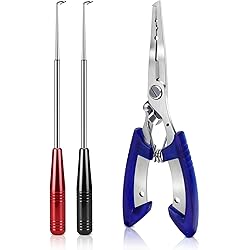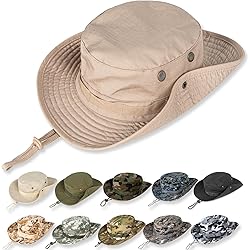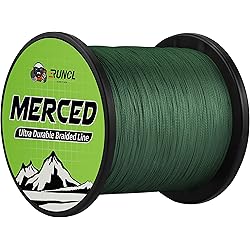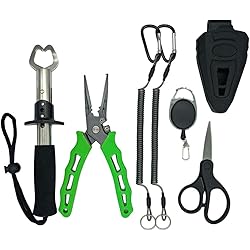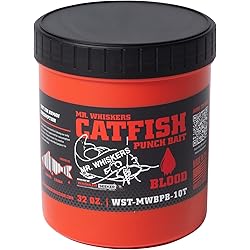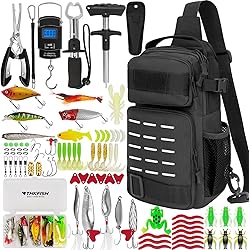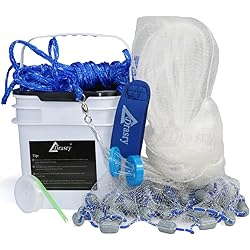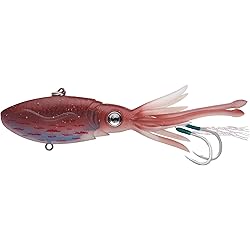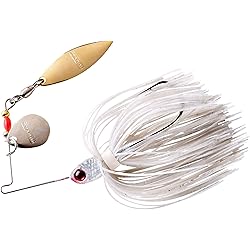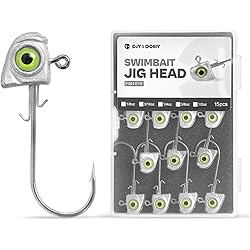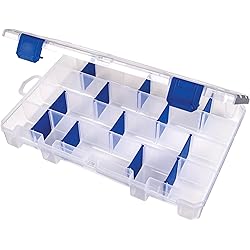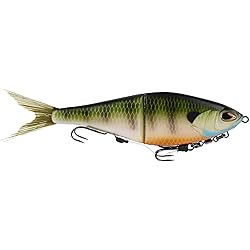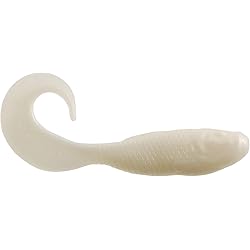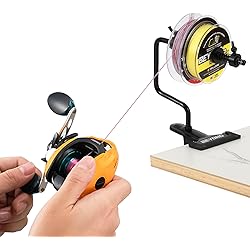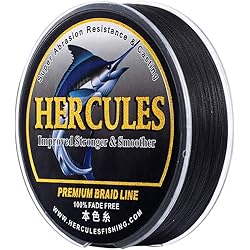Eco-Friendly Tips for Ocean Lovers, Our seas are vast reservoirs of wonder, beauty, and life. Nonetheless, they are delicate ecosystems, and human activity poses several hazards to them.
Adopting eco-friendly behaviors is essential for ocean enthusiasts to help preserve these important marine areas, ocean enthusiasts must adopt eco-friendly behaviors.
- Here are some thorough pointers to assist you in cherishing and safeguarding our waters.
Diminish Single-use plastics: Steer clear of plastic straws and use reusable bottles and bags.
Participate in Beach Cleanups: participate in or plan cleanups to clear shorelines of trash.
To help promote sustainable seafood, select seafood that comes from ethical sources.
Reduce Carbon Footprint: Support renewable energy sources, take public transportation, and practice energy conservation.
To engage in responsible tourism, choose eco-friendly tour companies and show consideration for marine life.
By adopting these behaviors, we can contribute to preserving the health and beauty of our seas for future generations.
Buy Outdoors Steelhead Inflatable Fishing Kayak
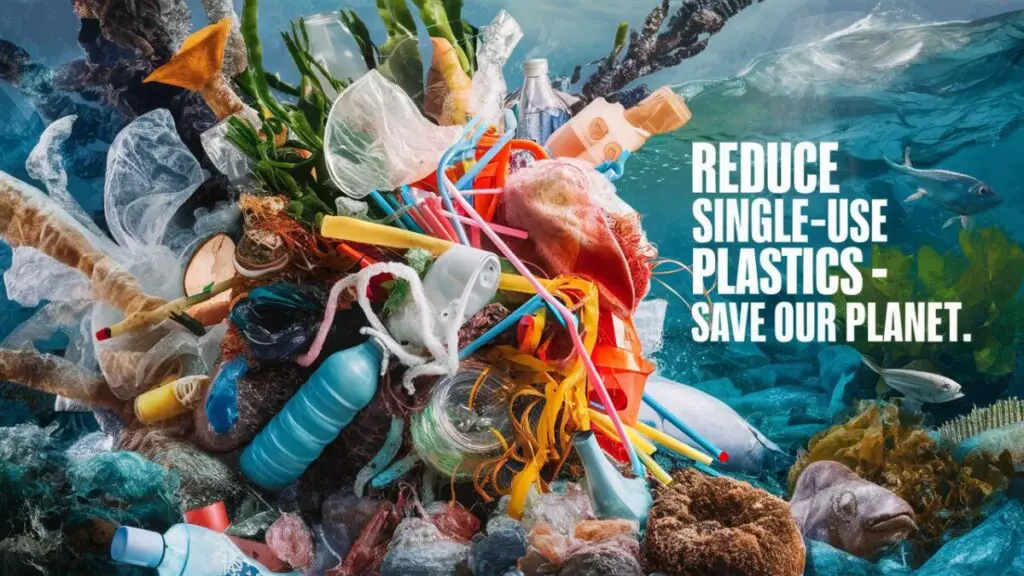
1. Reduce Single-Use Plastics
Plastic, a single-use item, is one of the worst contaminants in the water. Plastic bags, straws, bottles, and packaging are among the many items that wind up in the ocean and impact marine life and ecosystems severely.
When marine animals consume these plastics, which break down into microplastics that cause harm, disease, and frequently even death, it can take hundreds of years for the plastics to break down.
The accumulation of plastic debris jeopardizes the general health of ocean ecosystems by disrupting habitats and suffocating coral reefs.
We can lessen the impact on the ecosystem and save the delicate balance of marine life by switching from single-use plastics to sustainable alternatives.
Using reusable bottles, straws, and bags will help cut down on the quantity of plastic garbage that ends up in our seas, which will contribute to a healthier and more sustainable future for our planet.
Tips:
- Use Reusable Bags and Bottles: Carry a reusable shopping bag and water bottle. This small change can significantly reduce the amount of plastic waste you generate.
- Avoid Plastic Straws: Opt for metal, bamboo, or paper straws. Many restaurants also offer alternatives or no straws at all.
- Choose Products with Minimal Packaging: Select products that use minimal or no plastic packaging. Bulk shopping can also reduce plastic waste.
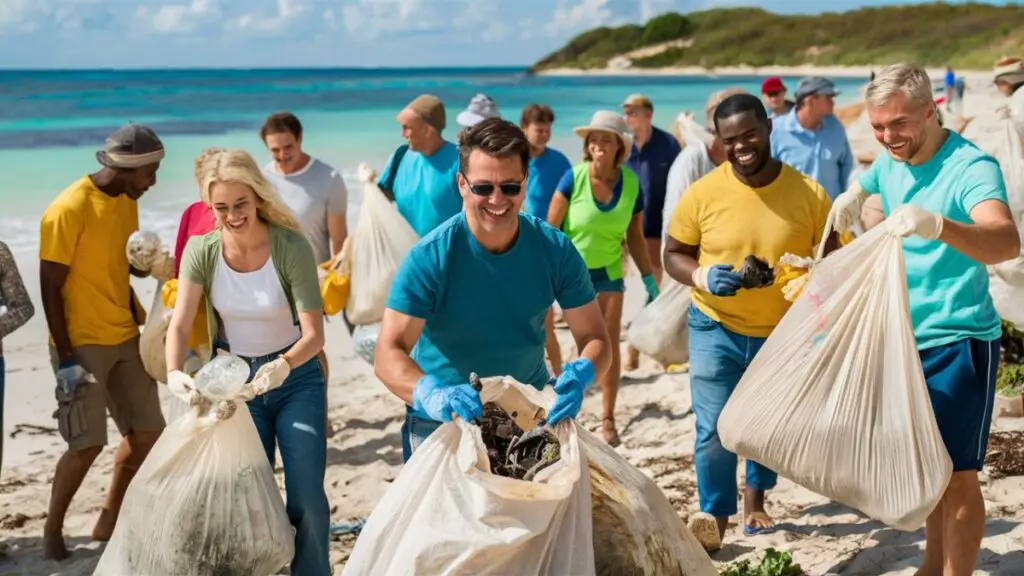
2. Participate in Beach Cleanups
Organizing beach clean-ups is one practical strategy to support ocean protection. These keeping garbage from entering the water before it does, these occurrences aid in protecting ecosystems and marine life.
By taking part in beach clean-ups, people can take direct action against pollution while improving and safeguarding animal habitats.
These initiatives also promote positive environmental behavior and increase public awareness of the negative effects of littering. Beach clean-ups also promote a sense of community by uniting people around the common objective of safeguarding the ocean.
By regularly participating in these activities, you may help create a healthier, more sustainable ecosystem by reducing the quantity of plastic and other debris that ends up in marine habitats.
Participating in beach clean-ups allows you to actively contribute to protecting our oceans’ biodiversity and natural beauty for future generations.
Tips:
- Join Local Cleanups: Look for organized cleanups in your area. Many environmental groups host regular events.
- Organize Your Own Cleanup: If there aren’t any local events, consider organizing one. Gather friends, family, or community members to clean a local beach or waterway.
- Make it a Habit: Incorporate beach cleanups into your regular activities. Even picking up a few pieces of trash during your beach visits can make a difference.
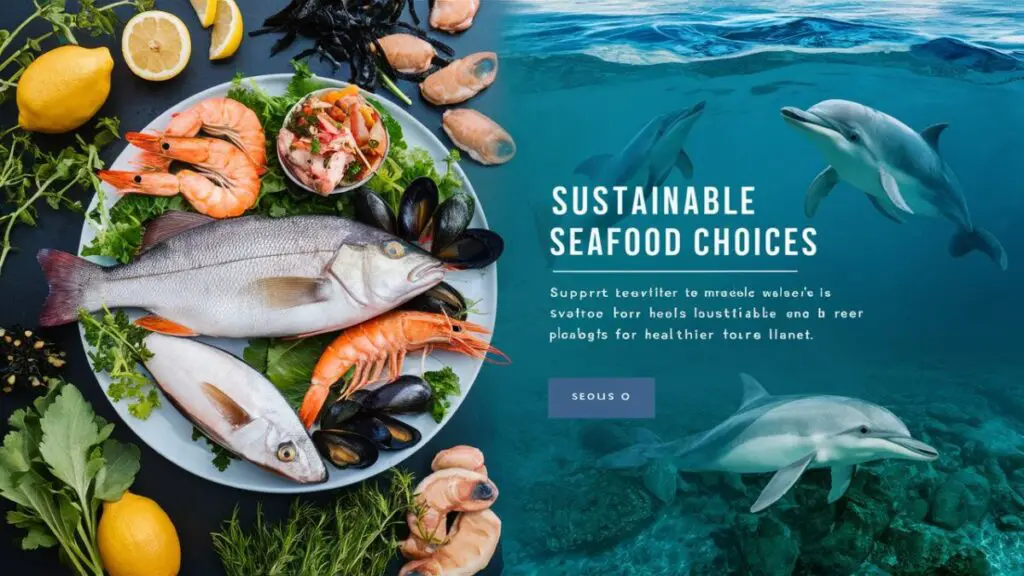
3. Support Sustainable Seafood
The equilibrium of ocean ecosystems is in jeopardy due to the sharp decline in marine populations brought about by overfishing and damaging fishing methods.
Nowadays, overexploitation of many species is causing fish supplies to fall and marine ecosystems to deteriorate. Supporting sustainable seafood choices is one of the most important steps towards reducing these effects.
We can support ethical fishing methods that save fish populations and preserve the marine environment by choosing responsibly obtained seafood.
Customers can confirm the sustainability of seafood by seeking certifications like the Marine Stewardship Council’s (MSC) seal. Making sustainable decisions helps protect our waters for future generations.
Tips:
- Educate Yourself: Learn about sustainable seafood options. Resources like the Monterey Bay Aquarium’s Seafood Watch can guide your choices.
- Ask Questions: When dining out, ask restaurants about the source of their seafood. Choose establishments that prioritize sustainability.
- Diversify Your Diet: Try lesser-known, sustainable fish species. This helps reduce pressure on overfished populations.
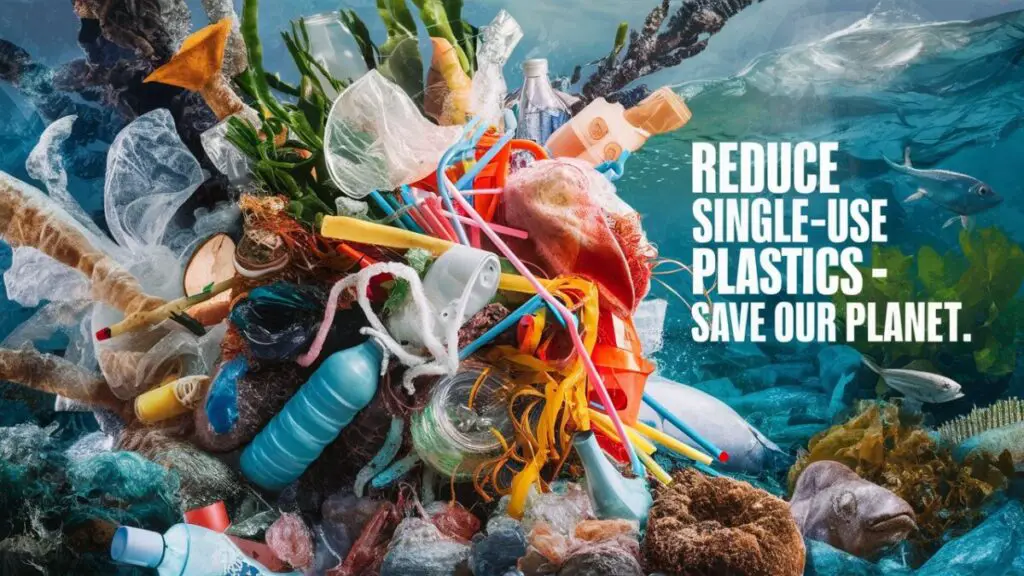
4. Reduce Carbon Footprint
Carbon emissions and climate change are causing sea levels to rise, the oceans to warm, and acidity to increase.
These changes threaten global weather patterns, coastal populations, and marine ecosystems are all at risk due to these changes.
Minimizing your carbon footprint can help to reduce these effects. Easy steps like using the bus or train, saving energy, promoting renewable energy sources, and cutting back on single-use plastics may have a big impact.
Individuals can ensure a healthy world for future generations and protect our seas by adopting sustainable behaviors and advocating for climate-friendly laws.
Tips:
- Use Public Transport: Opt for public transport, biking, or walking instead of driving. Carpooling and ride-sharing are also good options.
- Energy Efficiency: Make your home more energy-efficient by using LED bulbs, insulating your home, and using energy-efficient appliances.
- Support Renewable Energy: If possible, choose renewable energy sources for your home. Solar, wind, and other green energies have less impact on the environment.
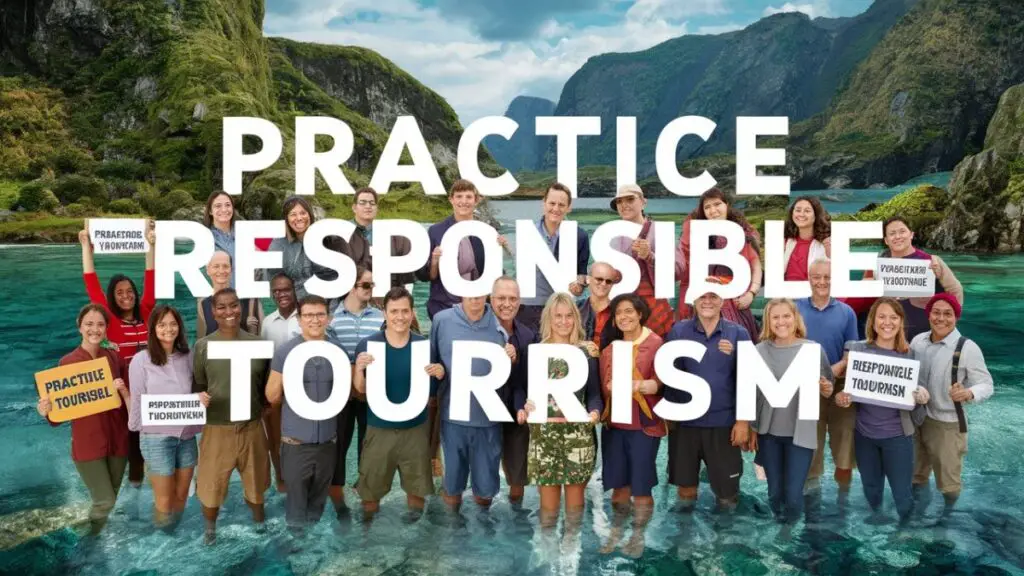
5. Practice Responsible Tourism
On maritime habitats, tourism may have both beneficial and detrimental consequences. It can raise awareness and provide funding for conservation, but it also runs the danger of causing pollution, overuse, and habitat disturbance, which can harm fragile ecosystems.
Responsible travel ensures that your actions do not harm the ecosystems you cherish. This includes picking environmentally conscious travel companies, being mindful of animals, reducing trash, and adhering to local laws.
You can responsibly enjoy and support marine habitats, contributing to their preservation for future generations by being aware of your influence.
Tips:
- Choose Eco-Friendly Operators: Select tour operators that prioritize sustainability. Look for certifications or memberships in eco-friendly organizations.
- Respect Wildlife: Maintain a safe distance from marine life. Avoid touching or disturbing animals and their habitats.
- Minimize Impact: Leave no trace by cleaning up after yourself and avoiding damage to coral reefs and other sensitive areas.
BUY Outdoors Steelhead Inflatable Fishing Kayak
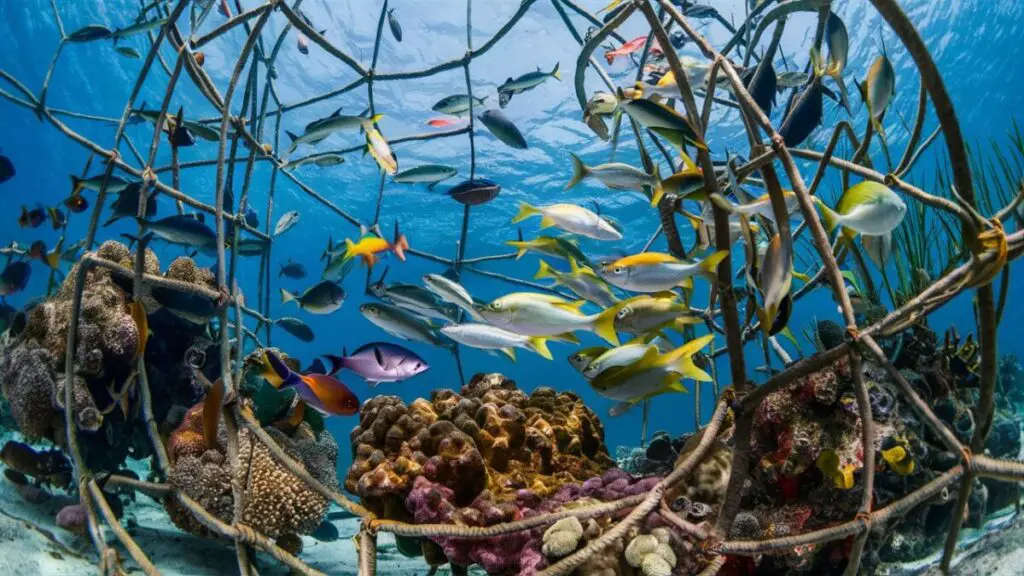
6. Advocate for Marine Conservation
Engaging in advocacy can strengthen your efforts to save the ocean. You may promote more significant change by endorsing laws and groups that work to save the maritime environment.
Advocate for more robust marine safeguards by interacting with legislators at the local, national, and international levels.
Encourage groups that strive to reduce pollution, establish marine protected zones, and implement sustainable fishing methods.
Engage in campaigns, sign petitions, and raise awareness of issues related to ocean conservation. Your voice and deeds may shape policies that protect our oceans’ health and sustainability for future generations.
When we work together, we can preserve marine habitats to a significant extent.
Tips:
- Stay Informed: Keep up with marine conservation issues. Follow reputable news sources, organizations, and scientists.
- Support Legislation: Advocate for policies that protect marine environments. Contact your representatives and participate in public consultations.
- Donate and Volunteer: Support conservation organizations through donations or volunteer your time and skills.

7. Reduce Chemical Use
Chemicals from fertilizers, insecticides, and home goods routinely end up in the water, endangering ecosystems and marine life. The accumulation of these contaminants may impact the water’s ecosystems and aquatic life.
We must use and dispose of chemicals responsibly to protect the delicate balance of our oceans. These chemicals contribute to water pollution, disrupt natural balances, and endanger the health of marine ecosystems.
Tips:
- Use Eco-Friendly Products: Choose biodegradable and non-toxic cleaning and personal care products.
- Proper Disposal: Dispose of hazardous materials like paint, batteries, and electronics at designated facilities. Never pour chemicals down the drain.
- Natural Fertilizers: Use compost or natural fertilizers in your garden instead of chemical options.
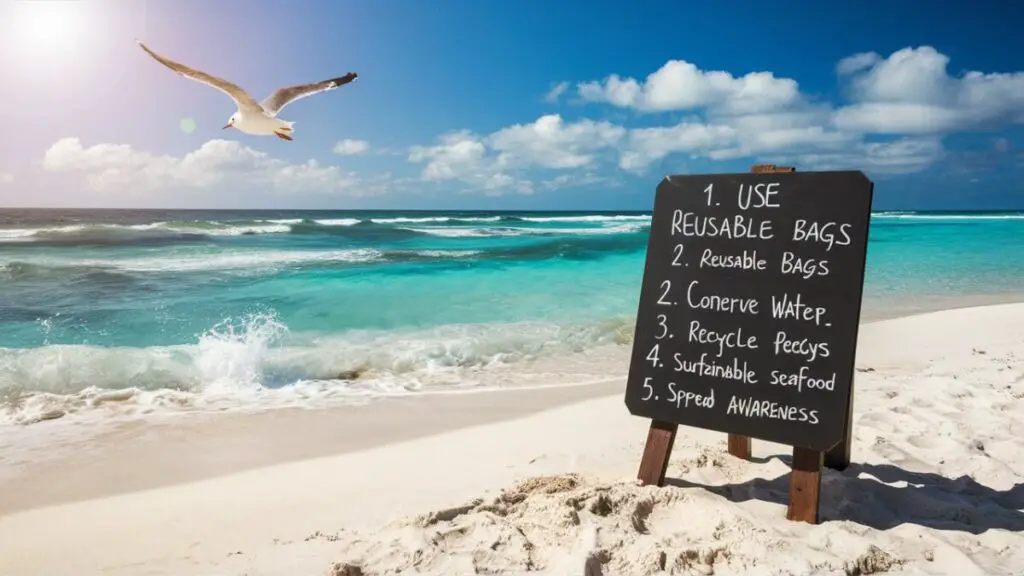
8. Conserve Water
Conserving water is critical for lowering energy costs associated with water distribution and treatment, as well as reducing ocean pollution. When we use less water at home and in industry, less dirty runoff reaches the seas. This helps to maintain marine habitats and encourages environmentally friendly water management techniques across the world.
Tips:
- Fix Leaks: Repair any leaks in your home to prevent water waste.
- Efficient Appliances: Use water-efficient appliances and fixtures, such as low-flow toilets and showerheads.
- Mindful Usage: Be mindful of your water usage. Turn off the tap while brushing your teeth and take shorter showers.

9. Support Marine Protected Areas
Marine Protected Areas (MPAs) play a crucial role in restricting human activity to safeguard ecosystems and marine life.
By supporting and honoring these regions, we help to preserve biodiversity, save endangered species, and maintain the resilience of maritime ecosystems.
MPAs are essential to preserving the health and balance of our seas because they act as safe havens for marine species.
Every act of conservation in these protected areas contributes to maintaining the complex network of life under the waves, guaranteeing that future generations will be able to enjoy the ecological and economic benefits of these ecosystems.
Tips:
- Learn About MPAs: Educate yourself on the location and rules of MPAs near you.
- Respect Boundaries: When visiting MPAs, adhere to all regulations to minimize your impact.
- Advocate for MPAs: Support the establishment and expansion of MPAs through advocacy and awareness campaigns.
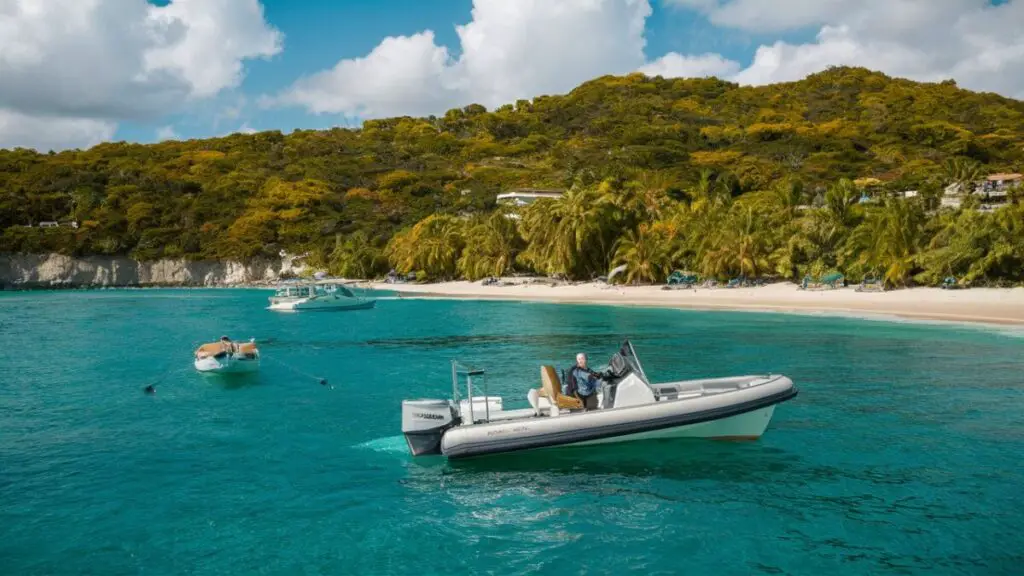
10. Engage in Citizen Science
Through public participation in scientific research, citizen science enables people to participate in initiatives with a marine focus.
Participating in these programs allows you to provide vital information that supports ocean conservation and knowledge.
Participating in activities such as biodiversity surveys, beach clean-ups, water quality monitoring, and marine species tracking may help us better understand marine ecosystems and guide conservation efforts around the world.
In addition to encouraging a closer relationship with the ocean, citizen science is essential to preserving its biodiversity and overall health for coming generations.
Tips:
- Join Projects: Participate in local or global citizen science projects. These can range from beach surveys to monitoring marine life.
- Collect Data: Use apps and tools provided by organizations to collect and submit data.
- Spread Awareness: Share your experiences and findings with your community to inspire others to get involved.
Eco-Friendly Tips for Ocean Lovers

11. Educate and Inspire Others
Education may bring about significant change. By imparting your expertise and enthusiasm for the sea, you may encourage people to embrace environmentally conscious behaviors.
Seminars, social media, or casual interactions can effectively promote awareness and sustainable practices regarding marine conservation among people.
Motivated individuals become catalysts for beneficial environmental change, initiating a chain reaction that sustains the health and sustainability of our seas for future generations.
Tips:
- Host Workshops: Organize workshops or talks in your community to educate others about marine conservation.
- Use Social Media: Share information, tips, and success stories on social media platforms.
- Lead by Example: Demonstrate eco-friendly behaviors in your daily life. Actions speak louder than words.
Chasing F1 PRO Underwater Fishing Camera

12. Support Research and Innovation
Innovation and scientific research are essential to solving problems with marine conservation. By sponsoring these initiatives, we open the door for ground-breaking ideas that improve ocean conservation.
Every advancement, from cutting-edge monitoring systems to environmentally friendly fishing methods, gets us one step closer to preserving marine ecosystems for future generations.
Supporting and encouraging scientific research allows us to understand, reduce, and adjust to the complexities of ocean health, promoting resilience in these critical global settings.
Tips:
- Fund Research: Donate to research institutions and projects focused on marine conservation.
- Stay Informed: Keep up with the latest scientific discoveries and advancements in marine science.
- Promote Innovation: Advocate for and support innovative solutions, such as biodegradable materials or advanced recycling technologies.
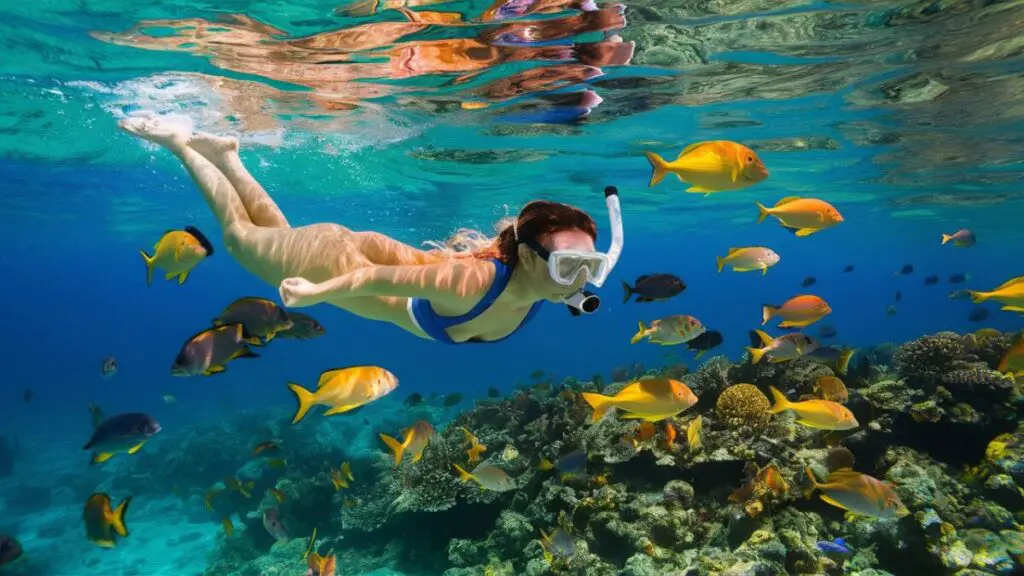
13. Engage in Sustainable Diving and Snorkeling
Snorkeling and diving provide unmatched views of the splendor of the underwater world.
However, in order to protect marine ecosystems, responsible participation is essential.
Sufficient regulation of buoyancy protects fragile corals from unintentional harm, while animal preservation ensures no disruption to their normal habits.
By selecting eco-conscious operators and following instructions, enthusiasts can actively preserve marine environments for future generations to explore and adore.
Tips:
- Choose Responsible Operators: Select dive shops and tour operators that follow eco-friendly practices.
- Avoid Touching: Do not touch or disturb marine life and coral reefs. Your touch can cause damage or stress to the organisms.
- Buoyancy Control: Maintain good buoyancy control to avoid accidental contact with the seabed or coral.
14. Plant Native Vegetation
Planting native vegetation helps protect coastal ecosystems by stabilizing the shoreline and providing habitat for wildlife.
Tips:
- Native Plants: Use native plants in your garden or landscaping projects. They are adapted to the local environment and require less water and chemicals.
- Create Habitats: Plant vegetation that supports local wildlife, such as birds and insects.
- Prevent Erosion: Planting along shorelines can help prevent erosion and protect coastal areas.

15. Reduce, Reuse, Recycle
The tenets of sustainable living—reduce, reuse, and recycle—are essential for reducing waste and protecting the environment.
Individuals and groups may dramatically reduce their ecological footprint by cutting back on consumption, finding inventive ways to reuse products, and recycling resources.
These actions promote a healthy world for both the current and future generations by reducing pollution and conserving resources.
Tips:
- Reduce Consumption: Be mindful of your consumption habits. Buy only what you need and choose durable products.
- Reuse Items: Find ways to reuse items instead of discarding them. Repurpose containers, clothing, and other materials.
- Recycle Properly: Follow local recycling guidelines to ensure your recyclables are processed correctly. Educate yourself on what can and cannot be recycled in your area.
16. Support Clean Energy Initiatives
Initiatives focused on clean energy are essential for reducing dependency on fossil fuels, which are major causes of ocean pollution and climate change.
Adopting renewable energy sources, such as wind and solar power, helps to protect marine ecosystems and their delicate balance by reducing harmful emissions and environmental effects.
These kinds of projects help us move toward a sustainable future in which more environmentally friendly energy methods protect the resilience and health of our oceans for future generations.
Tips:
- Invest in Clean Energy: If possible, invest in clean energy sources such as solar, wind, or hydroelectric power.
- Support Policies: Advocate for policies that promote clean energy and reduce carbon emissions.
- Community Projects: Participate in or support community projects that focus on clean energy solutions.

17. Be Mindful of Seafood Consumption
Initiatives focused on clean energy are essential for reducing dependency on fossil fuels, which are major causes of ocean pollution and climate change.
Adopting renewable energy sources, such as wind and solar power, helps to protect marine ecosystems and their delicate balance by reducing harmful emissions and environmental effects.
These kinds of projects help us move toward a sustainable future in which more environmentally friendly energy methods protect the resilience and health of our oceans for future generations.
Tips:
- Check Labels: Look for labels indicating sustainable seafood, such as the Marine Stewardship Council (MSC) certification.
- Seasonal Choices: Choose seafood that is in season and avoid overfished species.
- Local Sources: Support local fishermen who use sustainable practices.
18. Educate Youth
Teaching the next generation about the importance of marine conservation is crucial for long-term change.
Tips:
- School Programs: Support or volunteer for educational programs in schools that focus on marine conservation.
- Interactive Learning: Use interactive and engaging methods to teach children about the ocean, such as visits to aquariums or hands-on activities.
- Role Models: Be a role model for young people by practicing eco-friendly habits and sharing your passion for the ocean.
19. Engage in Policy Advocacy
Policy advocacy is essential for implementing large-scale changes that protect the ocean.
Tips:
- Stay Informed: Keep up with policy changes and proposals related to marine conservation.
- Engage with Representatives: Communicate with your local, state, and national representatives to express your support for marine protection policies.
- Public Participation: Participate in public consultations and hearings to voice your opinions on marine conservation issues.

20. Promote Eco-Friendly Practices in Businesses
Encouraging businesses to adopt eco-friendly practices can lead to significant positive impacts on marine environments.
Tips:
- Green Certifications: Support businesses with green certifications or those that follow sustainable practices.
- Corporate Responsibility: Advocate for corporate social responsibility (CSR) initiatives that focus on environmental protection.
- Consumer Influence: Use your purchasing power to influence business practices by choosing eco-friendly products and services.
21. Support Ocean-Friendly Products
Many products on the market are designed to be eco-friendly and support ocean conservation.
Tips:
- Eco-Friendly Brands: Choose brands that prioritize sustainability and reduce environmental impact.
- Biodegradable Products: Opt for biodegradable products that break down naturally and do not harm marine life.
- Innovation: Support innovative products that provide sustainable alternatives to conventional items, such as biodegradable plastics or waterless cleaning products.
22. Conserve Marine Life Through Art
Art can be a powerful medium for raising awareness and inspiring action for marine conservation.
Tips:
- Create Ocean-Themed Art: Use your artistic skills to create pieces that highlight the beauty and fragility of the ocean.
- Exhibitions and Galleries: Participate in or visit exhibitions that focus on marine conservation themes.
- Collaborate with Artists: Support and collaborate with artists who use their work to promote ocean conservation.
23. Reduce Light Pollution
Light pollution can disrupt marine life, particularly for species that rely on natural light cycles.
Tips:
- Dark Sky Initiatives: Support initiatives that aim to reduce light pollution and promote dark skies.
- Outdoor Lighting: Use outdoor lighting that minimizes light pollution, such as downward-facing lights and timers.
- Awareness Campaigns: Raise awareness about the impact of light pollution on marine life and advocate for measures to reduce it.

24. Adopt Sustainable Fashion Practices
The fashion industry has a significant impact on the environment, including the ocean. Sustainable fashion practices can help reduce this impact.
Tips:
- Eco-Friendly Materials: Choose clothing made from sustainable and eco-friendly materials, such as organic cotton, hemp, or recycled fabrics.
- Slow Fashion: Support slow fashion brands that prioritize quality and longevity over fast fashion trends.
- Second-Hand Shopping: Shop second-hand or vintage clothing to reduce waste and the demand for new products.
25. Support Community Initiatives
Community initiatives can have a powerful impact on marine conservation efforts.
Tips:
- Local Projects: Get involved in local projects that focus on protecting marine environments, such as habitat restoration or pollution reduction.
- Collaborate with Neighbors: Work with your neighbors and community members to promote eco-friendly practices.
- Community Events: Participate in or organize community events that raise awareness about marine conservation, such as film screenings, lectures, or festivals.
By adopting these eco-friendly tips, ocean lovers can make a significant difference in preserving and protecting our precious marine environments. Every action, no matter how small, contributes to the larger goal of sustaining the health and beauty of our oceans for future generations.
Hooked on Tech: Exploring the latest Fishing Gadgets that Anglers swear by.
In the realm of angling, where tradition and technology often converge, a new wave of fishing gadgets has emerged, transforming the way anglers approach their craft.
From advanced fish finders to smart bait systems, these innovations have not only revolutionized the fishing experience but have also garnered a loyal following among anglers worldwide.





